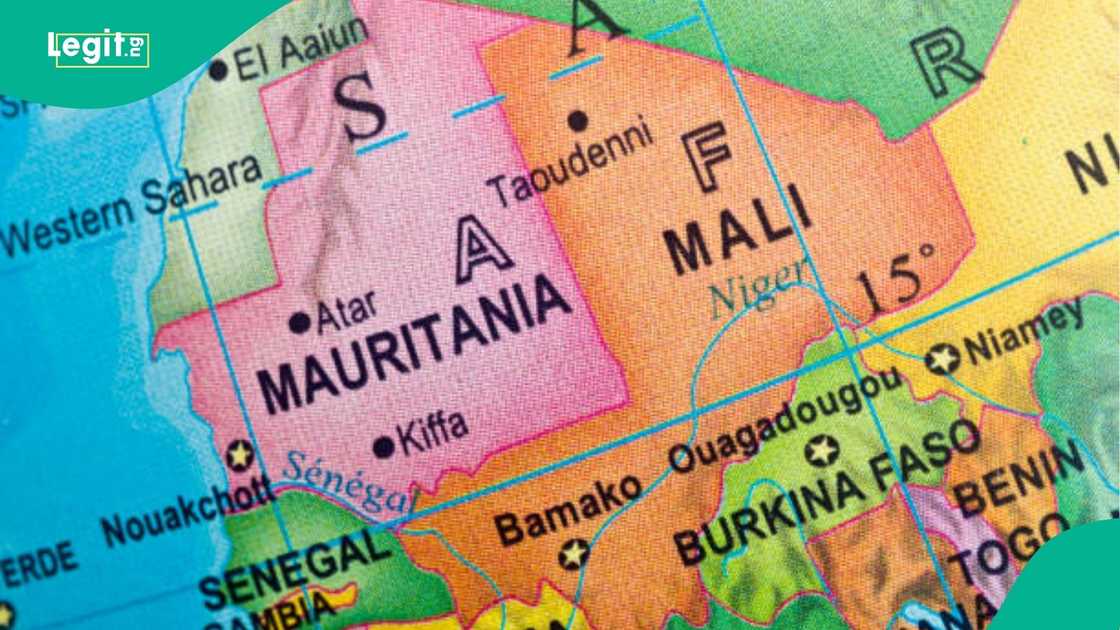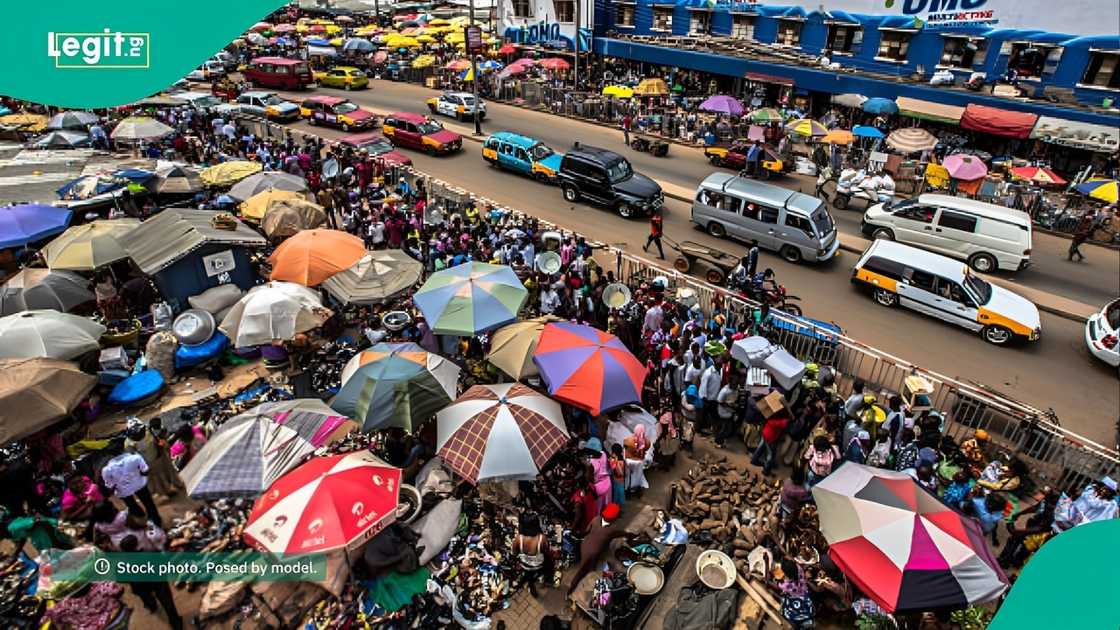Implications of Geopolitical Crisis on West African Trade Relations By Rahaman Abiola
Since January 2025 when Niger, Niger and Burkina Faso and Mali officially withdrew their membership of the Economic Communities of West African States (ECOWAS), the departure has left a big crack in the regional bloc’s commitment towards African regional integration along politics and economic borderline.
Don't miss out! Join Legit.ng's Sports News channel on WhatsApp now!

Source: Getty Images
The exit of these countries, now chosen to be identified as the Alliance of Sahel States (AES), is not the first time the ECOWAS’ ability to keep its members in pursuit of similar economic interests has been subjected to a litmus test. Since its establishment in 1975, the regional power bloc has suffered the same rupture twice, with Mauritania withdrawing to pursue an economic alliance with the Maghreb in 2020.
More than two decades later, the same fate befell the President Bola Tinubu-led ECOWAS after the body rang the suspension bell at the three countries following military takeovers, which respectively occurred in July 2023 (Niger), September 2022 (Burkina Faso) and August 2021 in Mali.
The decision by the Sahelian leaders to form a new alliance has been widely adjudged to be triggered by the ECOWAS’ draconian response to the spreading putschist interest in the West African region amid heightened geopolitical tension. On a broader view, it similarly underscores ECOWAS’ incapacity to address member-specific needs, coupled with over-reliance on sanctions instead of diplomatic engagement in response to the disruption of democratic order by soldiers.
But beyond the veneer of segregated institutional interest and confrontation between the junta-led states and the ECOWAS, there is a big smokescreen of factors jeopardising trade relations in the West African region.
It would be recalled that after ECOWAS announced sanctions, Nigeria closed its land and air borders with its neigbouring country Niger and cut off electricity supply. Among other numerous negative impacts, the development dealt a significant blow to cross-border trade relations and econonic alignment, threatening over $1.3 billion in trade along the trans-Saharan route due to restriction on goods movement between Nigeria, Niger, Chad, Mali, Tunisia, and Algeria.
On a larger scale of impact, this crisis is going to weaken the strength of ECOWAS as the economic engine room in Africa. In 2022, the body reported total trade volumes, encompassing imports and exports, amounting to $277.22 billion — with Burkina Faso's exports responsible for $4.55 billion, Mali's $3.91 billion and Niger's $446.14 million. Also, these three countries represent approximately 17% of ECOWAS's population and account for about 7% of its GDP. Their exit is going to bring a massive disruption to the ECOWAS economic dynamics.
The current crisis could also impact the implementation of the African Continental Free Trade Area (AfCFTA) by disrupting formal trade agreements. The AfCFTA, approved by the 18th ordinary Session of Assembly of Heads of State and Government, in 2012, is aimed at boosting intra trade relation in Africa by creating “a single market for goods, services, facilitated by movement of persons in order to deepen the economic integration of the African continent… and create a liberalised market for goods and services through successive rounds of negotiations.”
The disruption may lead to an increase in informal trade, especially along borders between Niger and Nigeria.

Source: Getty Images
Since the beginning of this crisis, which started with a spate of coups and ECOWAS sanctions, the objective for the establishment of the AfCFTA has been hindered as discord continues to fester between AES and ECOWAS members. AfCFTA’s mission to “resolve the challenges of multiple and overlapping memberships and expedite the regional and continental integration processes” will be less effective, and more states may choose to seek alternative economic realignments.
Recently, Togo’s Minister of Foreign Affairs, Robert Dussey, hinted at the possibility of the country joining the Alliance of Sahel States. Although he left the decision to President Faure Gnassingbé, Dussey’s revelation that the “Togolese people will say yes” to joining the junta-led group portends a troubling pattern capable of distorting trade relations structure in West Africa and the continent at large.
There is a possibility of increased trade barriers as citizens of the dissenting countries face tighter restrictions and limited intra-regional movement. Similarly, landlocked countries like Mali, Niger, and Burkina Faso may face higher import costs without free access to coastal ports such as Cotonou, Lomé, Abidjan, or Tema in what may further pose challenge to continental unity. One of the key projects which may be affected is the Kano-Maradi railway.
The project, approved by former president Muhammadu Buhari-led Federal Executive Council in September 2020, is a 283.75 km standard gauge railway line connecting Kano, Jigawa, and Katsina states in Nigeria to Maradi in Niger Republic. With $1.8 billion contract covering design and construction, it is amied at improving regional trade, stimulate economic growth, improve transportation and connectivity between Nigeria and Niger. Although the project is still ongoing, tension between Niger and Nigeria may distort the initial projection of the infrastructure being completed in 2026.
The ongoing crisis may consequently increase food insecurity and allow more external influence in West African trade activities and affairs, further causing disintegration among the West African states. Russia, for instance, has cemented relations with the deviant army-led nations, providing military and economic support in Moscow's interest. This move puts the African economy at the mercy of neo-colonial imperialism and semi-feudal agrarian structure.
Achieving free trade requires an intentional and strategic response to members’ economic needs. ECOWAS, as an umbrella economic body recognised by the African Union (UN), must live up to its status by reviewing its engagement mechanism in the face of a growing putschist agenda. Diplomatic means should be deployed instead of sanctions, while all members must put their eggs in the same basket to pursue similar interests against individual ego.
Rahaman Abiola is a journalist and a 2025 free trade fellow at the Ominira Initiative for Economic Advancement.
PAY ATTENTION: Сheck out news that is picked exactly for YOU ➡️ find the “Recommended for you” block on the home page and enjoy!
Proofreading by Nkem Ikeke, copy editor at Legit.ng.
Source: Legit.ng


